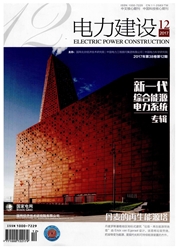

 中文摘要:
中文摘要:
可靠性是衡量电网运营水平的重要指标,传统的思路大多是通过技术手段,提高电网建设的规格以提高电网可靠性,这一思路忽略了政府的作用。为了研究需求侧管理(demand side management,DSM)实施力度、输配电价激励政策等政府行为因素对电网可靠性的影响,首先基于考虑了电网容载比的电网可靠性评价指标和系统动力学建立了电网可靠性评价模型,提出了因果关系图和系统栈流图。然后,使用Vensim软件对该模型进行了多情景下的仿真模拟,揭示了电网可靠性指标和需求侧资源渗透率以及输配电价激励之间的关系。算例结果表明,需求侧资源的增加可在不影响电网可靠性的情况下带来经济效益;政府对输配电价的激励强度与电网可靠性之间存在较为明显的正相关,且政府可通过小幅的输配电价激励使电网可靠性维持在较高水平。最后,基于算例结果,给出了政府提高电网可靠性可考虑的建议。
 英文摘要:
英文摘要:
Reliability is an index,of great importance,to evaluate the level of pow er grid. Traditionally,the idea to improve the reliability of pow er grid is to use technical method and improve the specifications of pow er grid construction,w hich ignore the role that the government plays in this issue. In order to study the relationship betw een grid reliability and government actions such as the implementation of demand side management( DSM) and the incentive on transmission and distribution price,firstly,a simplified reliability evaluation index w as presented based on the capacity-load ratio,an evaluation model of grid reliability w as built based on system dynamics,and the causal loop diagram and the system stack flow chart w ere presented as w ell. Then,the simulation w as carried out on the model by VENSIM under different scenarios,w hich revealed the relationship of the grid reliability index, demand-side resource permeability and the incentive on transmission and distribution price. The results show that the increase of demand-side resources can bring economic benefits w ithout influencing the pow er grid reliability; there is an obvious positive correlation betw een the incentive strength of government on transmission and distribution price and the grid reliability index of pow er grid; and the government can keep the reliability index at a high level by slightly incenting the transmission and distribution price. Finally,some suggestions on the reliability improvement of pow er grid w ere proposed for the government,based on the example results.
 同期刊论文项目
同期刊论文项目
 同项目期刊论文
同项目期刊论文
 期刊信息
期刊信息
